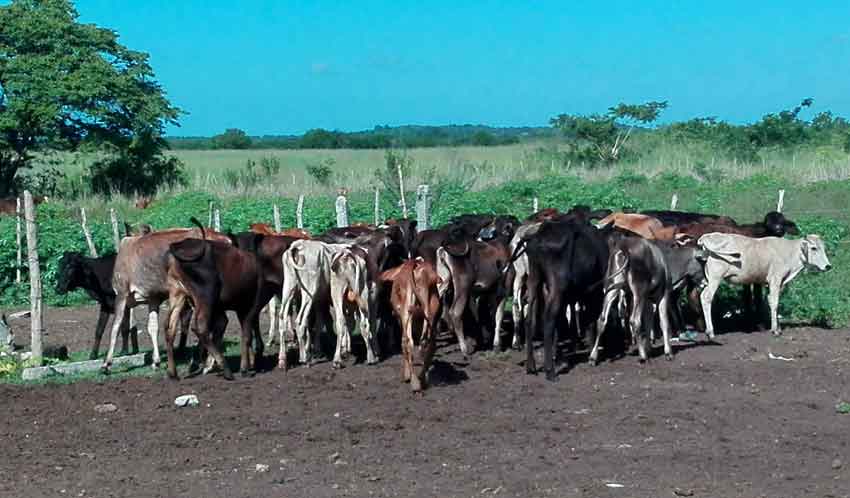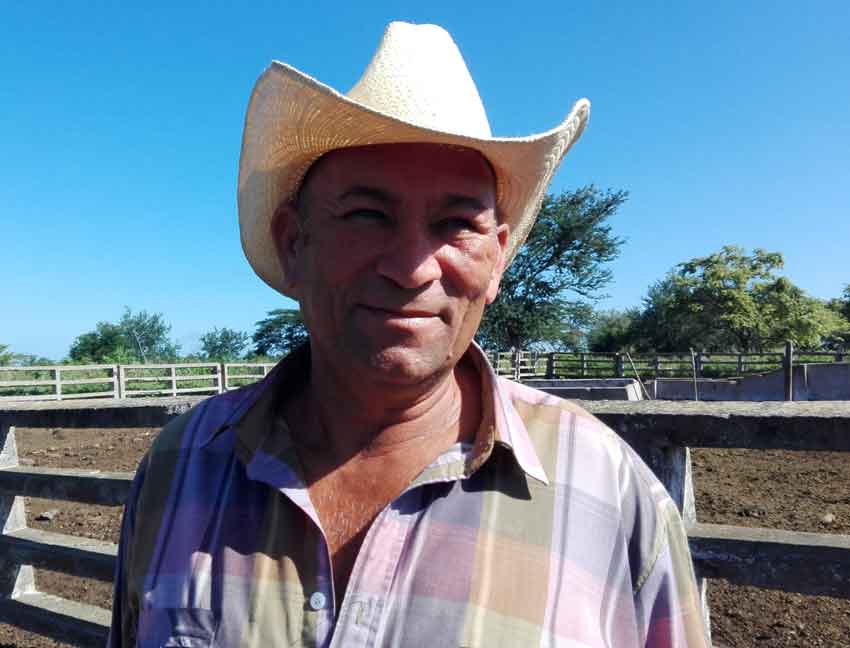
The most terrible thing for a farmer is to have a cow stolen because it takes a long time, about a decade, to train her and bring her to her best reproductive stage. In that case, it is necessary to start over and take care of the female's health from the moment she is born.
Las Tunas, Cuba.- Avoiding these bad times is an aspiration in the Waldemar Membrado Basic Unit for Cooperative Production (UBPC), in the municipality of Las Tunas, where milk and meat are produced under very difficult material conditions, in addition to the criminal acts against livestock.
 Reynaldo Barroso Velázquez, president of the UBPC, explained that the 75 workers of the entity are committed to the protection of animals, but sometimes their efforts are in vain in the face of a phenomenon that has taken over the Cuban countryside.
Reynaldo Barroso Velázquez, president of the UBPC, explained that the 75 workers of the entity are committed to the protection of animals, but sometimes their efforts are in vain in the face of a phenomenon that has taken over the Cuban countryside.
"We received the unit in 2011 with many criminal acts and we had been quiet for years.
However, the situation is now unbearable and today we consider it a tragedy. It happens mostly during the day and you have to walk behind the herds the whole day because, in the slightest carelessness, they take them away.
"We have already set up surveillance patrols that are going around the different areas and we are trying to make sure that everything goes well. But, the truth is that it is very difficult. We use marabú because we don't have wire for the fences or where to buy it.
"The strategy is yielding results because the occurrence of this crime has been reduced.
So far this year we have had three incidents involving six female cattle and that is what has hurt us the most because each one gives an average of 550 liters of milk, so much that the province and the country need it"!
The unit manages an estate of about 1,500 hectares, 30 of which are dedicated to various crops and the rest to cattle raising. In these properties grow and produce about 1,031 head of cattle, 758 of which are females, including yearlings, heifers, and cows.
"We have four typical milking dairies and one fattening dairy, three development centers and one heifer center, and the El Cedro unit, which we are now receiving to try to create an equine yard and a future stallion center. It means that, if there were no artificial insemination, we will guarantee gestations.
"The idea is to increase births and cover the deficit we have in our herds. By completing them we will be able to fulfill the plans and in case we have surpluses, they can be sold to our farmers or those associated with the UBPC."
In 2022, the workers' collective delivered 297,000 liters of milk and 44.9 tons of beef. And although the current calendar has been very difficult, up to the end of April, the commitments for both products are being honored.
"We have worked hard, tirelessly. But we consider ourselves fortunate because we have enough water, one of the most important resources for cattle raising. Near our area, is the La Jibarera micro dam, which we share with the Calixto Sarduy agricultural production cooperative.
"We haven't had any problems with feed either. Here we planted almost 40 hectares of Pangola-grass and that kind of pasture is giving us excellent results in feeding the young cattle and the most vulnerable animals such as the sick, pregnant, and calves."
"We also have King Grass in the Cowshed 30, where the La Ceiba unit is located and, with that, we faced the dry period, despite the forest fires. The two areas are maintained with their rehabilitation, to have food in 2024".
There is plenty of will among the collective; and talent and experience, as well, to do things better. They are only worried that - instead of grass and pastures - crimes will grow and that the milk the children need will be lost among the abandoned bones of a cow killed by a slaughterer.





